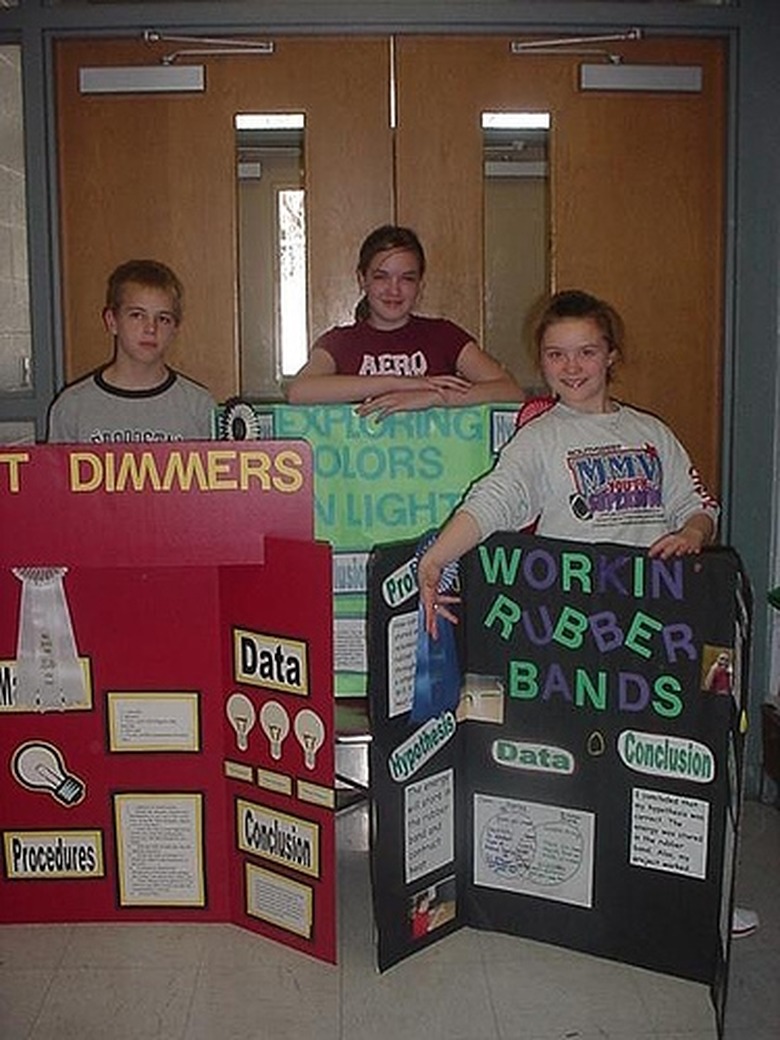Interesting Science Projects
Science fair projects offer students a chance to get hands-on experience with the scientific method, while studying a subject that they are interested in. There are thousands of possible projects to choose from in nearly any scientific field, so it is important that students choose a project that is appropriate for their grade level and, more importantly, that they are interested in.
Types of Projects
Types of Projects
Science projects span the range from biology and chemistry to engineering and computers. Younger students may choose fairly simple types of projects that require more observation than experimentation and tinkering (such as planting seeds in different soil and recording the results).
As students progress through middle and high school, they may add more variables to the project (like adjusting both the soil and sunlight), create more elaborate setups, or branch out into more advanced areas of science like computer engineering and statistics.
Elementary School
Elementary School
In elementary school science fairs, the goal is to give students an opportunity to dynamically learn how the scientific method works. When choosing a project for kindergarten through 5th grade, try to pick a hypothesis that will be easily observable.
One interesting project is designing an experiment to test the effects of gravity on plant growth. This is an easily observable phenomenon that will give a young student a firm grasp on how an experiment is run. Another great topic is researching whether yeast is a living organism by having the student observe yeast for signs of organic life (i.e., the ability to use energy).
Middle School
Middle School
For middle school projects, students can get more specific with their topics and begin researching more advanced areas of science. Engineering and computer projects are more common as students learn about physics and electricity. One good project is constructing a homemade radio to explore the principles of radio waves and sound. Another option for this level of education is to test different brands of orange juice for varying levels of vitamin c, using vitamin c indicator solution and a dropper.
High School
High School
High school science fair projects should be an opportunity for students to deepen their knowledge about a subject that interests them while showing their mastery of the scientific method; science fairs at this level are often ranked and can even lead to collegiate scholarships. One option is to do an exploratory project on fermentation using grapes and yeast by studying the ethanol byproducts produced. A more advanced project might include looking at the efficiency of the lactase enzyme on lactose.
Project Tips
Project Tips
For a project at any level, starting early is the key to getting good results. Double-check the topic with a teacher to ensure that it meets any requirements. While running the experiment, follow through from the problem and hypothesis to the conclusion in order, and make sure that your procedures and observations are clear and precise. For the actual presentation, results should be presented as neatly as possible, and make sure to add detailed pictures to illustrate the experiment.
Cite This Article
MLA
Vega, Anthony Diaz de la. "Interesting Science Projects" sciencing.com, https://www.sciencing.com/interesting-science-projects-12742108/. 9 September 2009.
APA
Vega, Anthony Diaz de la. (2009, September 9). Interesting Science Projects. sciencing.com. Retrieved from https://www.sciencing.com/interesting-science-projects-12742108/
Chicago
Vega, Anthony Diaz de la. Interesting Science Projects last modified August 30, 2022. https://www.sciencing.com/interesting-science-projects-12742108/
